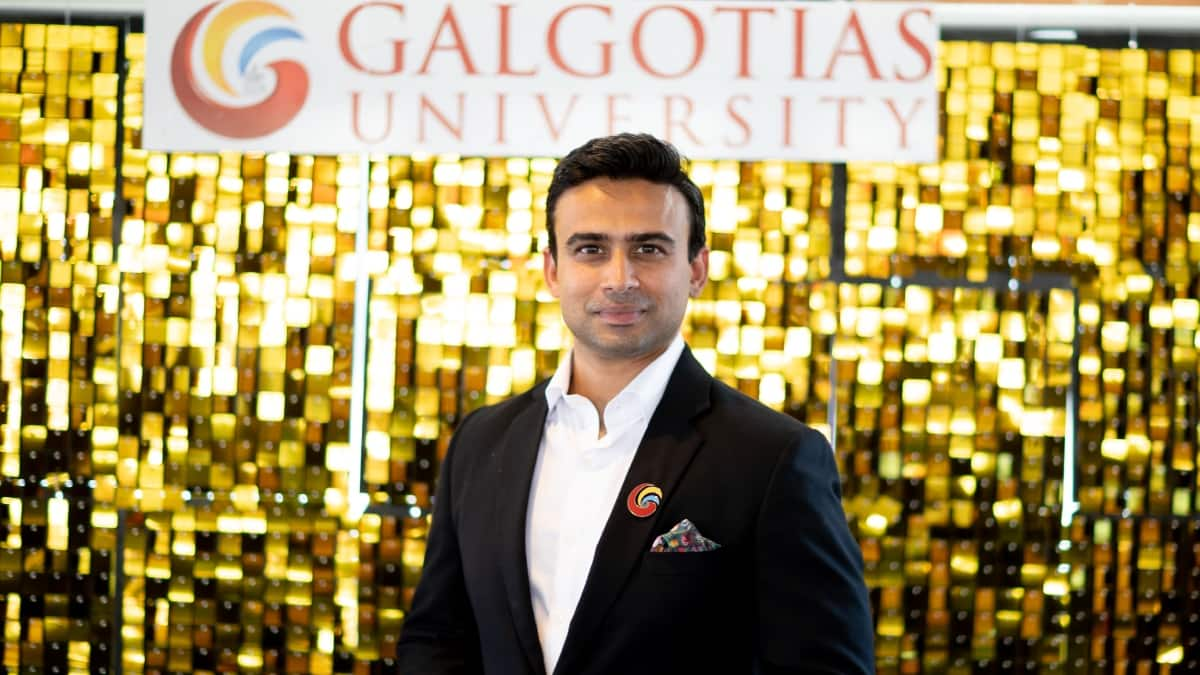Learner’s Park; A fulfilling career often sprouts from genuine enthusiasm, says Dhruv Galgotia of Galgotias University
Dhruv Galgotia, CEO of Galgotias University shares his views on opportunities and challenges of the education system in India with FE Education Online
What is the best thing about today’s education system?
What is the one thing you would like to change in the system?
The one thing I would like to change in the system is the focus on rote learning. Rote learning encourages students to memorize information without truly understanding the underlying concepts. I believe it’s crucial to shift the emphasis towards a more holistic and experiential learning approach. This means encouraging interactive learning, critical thinking, problem-solving, and creativity in classrooms. By promoting a deeper understanding of subjects and nurturing practical skills, we can better prepare students for the complexities of the modern world. This change would not only enhance the quality of education but also empower students to apply their knowledge meaningfully in various real-life situations, fostering a more innovative and adaptable workforce for the future.
What is the role digital has played in the evolution of the education system?
Digital technology has profoundly transformed education, serving as a democratizing force that brings knowledge within reach of millions worldwide. It transcends geographical limitations, enabling students to access expertise from across the globe. Additionally, digital tools have revolutionized personalized learning, catering to diverse learning styles and offering real-time feedback for continuous enhancement. Alongside this digital evolution, the advent of AI, exemplified by ChatGPT and other AI technologies, has brought both merits to the education landscape. AI, like ChatGPT, offers unparalleled access to information, aids in personalized learning experiences, and facilitates instant assistance.
What has been the disadvantage of digital in education?
While digital technology has revolutionized education, it has also brought challenges. One significant disadvantage is the digital divide. Not all students have equal access to computers and the internet, creating disparities in learning opportunities. Moreover, there are concerns about online distractions and the need for digital literacy to discern credible information from misinformation. Balancing the benefits of technology with addressing these challenges is crucial for a holistic and inclusive education system.
What is the career advice you would like to give to students?
My advice to students is multifaceted. Firstly, embrace the ethos of lifelong learning. Cultivate curiosity, stay abreast of industry trends, and commit to continuous skill development, ensuring adaptability in the future job market. Secondly, prioritise the refinement of soft skills like communication, teamwork, and leadership, recognizing their universal importance across professions. Thirdly, consider the paradigm of becoming job creators rather than solely job seekers. Entrepreneurship and innovation offer avenues to shape industries and create opportunities. Lastly, follow your passions ardently. A fulfilling career often sprouts from genuine enthusiasm. Believe in your capabilities, set audacious goals, and let perseverance and diligence pave your unique path to success. Remember, education forms the base, but your choices and endeavors define your journey to triumph.




